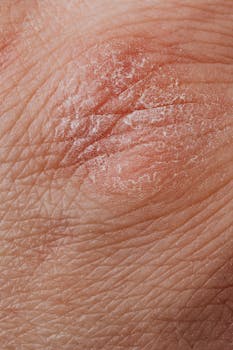
More Allergy, Asthma & Infectious Disease Articles
Effective Strategies for Treating Atopic Dermatitis in Adults

Atopic dermatitis, commonly known as eczema, is a challenging condition that affects many adults. The search intent behind finding effective strategies for adult patients atopic dermatitis treatment often centers around reducing symptoms and improving quality of life. This article explores various treatment options and strategies specifically designed for adults struggling with this chronic skin condition.
Understanding Adult Patients Atopic Dermatitis Treatment
Atopic dermatitis in adults can manifest in various forms and severity levels. It is essential to recognize that what works for one patient may not work for another. Hence, personalized treatment plans are crucial. Let’s delve into some common treatment strategies.
Topical Treatments
Topical treatments are often the first line of defense. Moisturizers, prescribed corticosteroid creams, and non-steroidal topical agents can help alleviate itching and inflammation. Regular application of emollients keeps the skin hydrated, thus fortifying the skin barrier.
Phototherapy
Phototherapy or light therapy is an option for those not responding to topical treatments. It involves exposing the skin to controlled ultraviolet light under medical supervision. Phototherapy can reduce inflammation and itchiness often associated with atopic dermatitis.
Systemic Medications
For adult patients with moderate to severe atopic dermatitis, systemic medications may be necessary. These include oral corticosteroids, biologics, and immunosuppressants. While effective, these medications can have side effects, so careful management by a healthcare provider is essential.
Integrative Approaches
Integrative approaches such as stress management, dietary changes, and alternative therapies like acupuncture may support traditional treatments. These methods aim to address the holistic health of the patient and reduce flare-ups.
Lifestyle Modifications
Lifestyle changes play a crucial role in managing atopic dermatitis. Avoiding known triggers, such as certain fabrics, harsh soaps, and extreme temperatures, can significantly reduce flare-ups. Regular exercise and a balanced diet contribute to overall well-being and skin health.
For additional reading, consider learning about how certain lifestyle choices can impact skin health and other conditions.
Support and Education
Joining support groups, either online or in-person, can provide valuable insights and emotional support. Education about the condition empowers patients, helping them make informed decisions regarding their treatment plans.
Adult patients atopic dermatitis treatment is a continuous process that requires adaptation and resilience. Consulting healthcare professionals for tailored advice is crucial. For further information, visit this informative Wikipedia article on health.
- Atopic dermatitis requires a personalized treatment plan for each patient.
- Topical treatments and phototherapy are common first steps.
- Systemic medications may be necessary for more severe cases.
- Lifestyle modifications play a significant role in managing symptoms.
- Support groups provide emotional and educational benefits.
FAQs
What is the most effective treatment for atopic dermatitis in adults?
Effectiveness varies, but a combination of topical treatments alongside lifestyle changes is often effective. Consultation with a healthcare provider is recommended.
Can diet affect atopic dermatitis?
Yes, certain dietary changes may help manage symptoms, although there is no cure. Some patients find relief by avoiding specific allergens.
How does stress influence atopic dermatitis?
Stress can exacerbate atopic dermatitis flare-ups. Incorporating stress-reducing practices such as meditation or yoga can be beneficial.
Are there any alternative therapies for atopic dermatitis?
Alternative therapies, including acupuncture and herbal remedies, may offer relief for some patients. They should complement, not replace, traditional treatments.
Is atopic dermatitis the same as eczema?
Atopic dermatitis is a form of eczema, but not all eczema is atopic dermatitis. It is important to receive an accurate diagnosis for appropriate treatment.
Other Articles You May Find of Interest...
- Mastering ANC Calculation: A Complete Guide to Understanding Absolute Neutrophil Count
- Is Quantiferon TB Gold Plus the Key to Accurate Tuberculosis Screening?
- Mottled Skin: Causes, Symptoms, and Treatment Options Explained
- Understanding Petechie: Causes, Symptoms, and Treatment Options for Better Health
- What Does an Orange Tongue Indicate About Your Health?
- Maximizing Lung Health: The Importance of Minute Ventilation Explained
- Navigating the Challenges of Nightshade Allergy and Its Impact on Health














